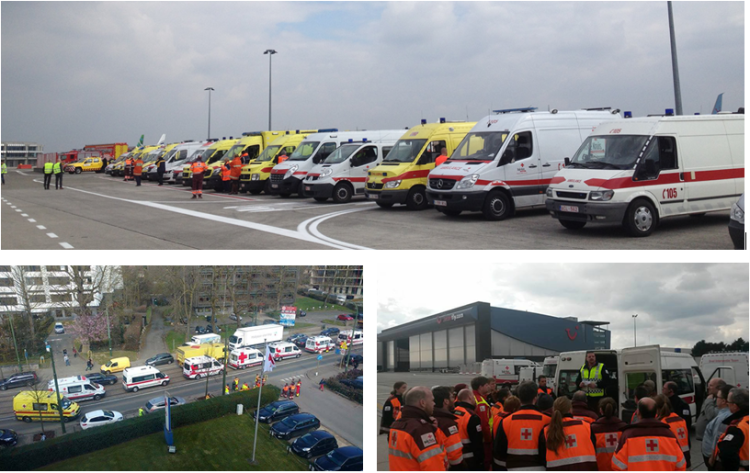New publication: Volunteer survey in the aftermath of the 2016 Brussels terrorist attacks
23/11/22

After the 2016 terrorist attacks in Brussels, the Social Intervention Service of Belgian Red Cross (BRC) wanted to assess how the BRC volunteers were feeling after the attacks. While Relief Service volunteers provided mainly medical support, Social Intervention Service volunteers delivered psychosocial support to those affected by the traumatic event. These volunteers not only interacted with the victims, but also provided information to their friends and family, and supported them during the identification of deceased victims in the case of casualties.
The Social Intervention Service sent out several surveys to all volunteers, both those of the Relief Service as well as their own volunteers regardless of whether they were actively involved in the response, standby at home or on location, or not activated. By using standardised questionnaires such as the PANAS (Positive Affects and Negative Affects Scale) and IES (Impact of Events Scale), the Social Intervention Service wanted to gauge how the volunteers themselves were feeling in the aftermath of the attacks and whether the support offered by BRC to its volunteers actually reached them.
In contrast to our research hypothesis, volunteers who were actively deployed and probably in contact with victims and people directly affected by the attacks did not score worse on the PANAS and IES (and, as a matter of fact, even better on the Negative Affects subscale of PANAS) than those who were not active. Stress symptoms were low from the start of the study and further decreased over time in all categories of volunteers.
In conclusion, BRC volunteers on average had low posttraumatic stress symptoms and high mental well-being after the March 2016 attacks in Brussels. The detailed results of this survey can be found in our paper that has been published in the TRC Journal of Humanitarian Action.
